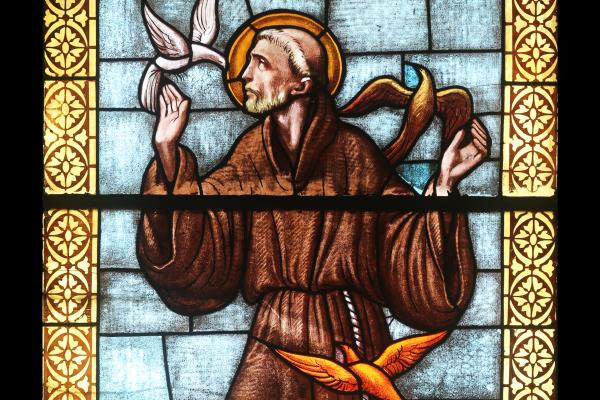Every year on Oct. 4 a strange thing happens outside of an ecumenical list of churches around the globe. As if each church were reenacting Noah’s Ark, a bevy of animals and their human counterparts congregate just outside the doors for a ceremonial Blessing of the Animals to commemorate the feast day of Francis of Assisi. The sight of horses, dogs, cats, birds, snakes, and pot-bellied pigs jockeying for position could be called disarmingly odd to a first timer or refreshingly quaint to the already initiated. As a follower of St. Francis myself, I would label the spectacle as revolutionary in a small way that continues to subtly permeate Christian culture to this day. Rather than celebrate the quirkiness of the ritual itself, I would like to speak to St. Francis as an icon for justice whose way of organizing and advocacy is not only rooted in Christianity, but may just provide the necessary strategy for handling a major justice issue of our time: Do all God’s creatures have a place in God’s house?
From the day Christ spoke through a cross at San Damiano Church, “Francis, go repair my household, which you see has fallen into ruin,” Francis of Assisi was called to restore God’s household. This call echoes the prophet Isaiah who called young people to restorative justice as “repairers of the breach and restorers of ruined dwellings” (Is 58:12). Scripture tells us that God’s household has many dwelling places (John 14:2): our worship spaces are contained in houses (Rom 16:5), our bodies are temples of God (1 Cor 6:19), even the Earth itself is a house within God’s household (2 Cor 5:1). The revolutionary thing that Francis appreciated about God’s household was the significance of the incarnation: Everything came to be through the Word of God (John 1:10) and the Word itself became Jesus Christ. By virtue of Creation, everything is related to Christ and a mirror to God.
Read the Full Article

